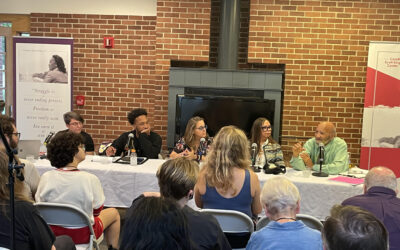In response to the ongoing operational and financial disruption from the COVID-19 pandemic, the Antioch College Board of Trustees has adopted a budget for the fiscal year beginning July 1 that reduces college spending by $2.5 million, more than 20 percent.
The budget reduces non-teaching staff by eight positions (all presently furloughed), and the faculty by six positions. Faculty reductions were achieved through a combination of retirement and voluntary and negotiated departures.
The decision-making process related to these changes was careful and deliberative. A trustee task force—working with board committees, the administration, and with the faculty and their executive committee—labored for many weeks to align the College’s core educational program with available resources. College leaders are confident these changes will provide a sustainable plan for delivering Antioch’s distinctive brand of experiential education—which combines real-world work, community engagement, and rigorous classroom learning—to new and returning students in the fall and beyond.
“Because they touch our colleagues, the steps being taken are clearly painful and regrettable. We are very mindful of the individuals and families affected, and sincerely wish our circumstances were different. But they are not. Nor are difficult decisions like these unique to Antioch. But it is our belief that a stronger outcome has been achieved through a deliberative process among representative stakeholders on the board and with the faculty,” President Tom Manley said.
“Words cannot adequately express my concern for the individuals who have been negatively impacted,” says Board Chair Maureen Lynch. “I know all Antioch trustees share these concerns. We are also determined to face the current fiscal challenges directly and together as only Antioch can. We cannot ignore these challenges. The present moment requires sacrifices and creativity to address financial realities compounded by COVID-19. Our job is to keep the College alive while we wait for the pandemic to subside and to prepare for the changes that are surely coming to higher education.”
“Well before this global crisis, Antioch has been innovating its learning and operational model,” added Manley. “We remain committed to addressing issues of affordability and access, while preparing students for the changing world of work and the urgent, ongoing need to act for justice. We have called this program Antioch College Works for those reasons, and because we are uniquely equipped to deliver, after 100 years, education integrating real work with robust study.”
In a statement, Antioch’s Executive Committee of the Faculty said, “We are pleased that the Board Budget Task Force and the Board accepted our proposal, which shows that they honor shared governance with the faculty and respect our expertise as stewards of the curriculum. We recognize that at many other colleges and universities, the faculty have little to no control over how these difficult decisions are made. We are encouraged for the future of Antioch College that the Board actively sought out and listened to faculty voices.” The Executive Committee of the Faculty led the effort of negotiating the Academic Affairs budget changes with the objective of balancing cuts to positions with a coherent curriculum that will retain and attract students, and maintaining morale by providing the faculty agency in the budget reduction process.
Budget decisions were guided by the College’s strategic priorities, which include the build out of the Antioch College Works Program and the imperative to strengthen the College financially. Savings were identified in all areas of the College, even while protecting the academic program and the student experience. Financial support for students through Antioch College Works and other existing scholarships and aid are unaffected.
“As a Board we knew changes were needed to maintain the possibility of an Antioch in the future,” said Shadia Alvarez ’96, who has served on the Board since reopening and is a member of the budget task force. “These are not numbers on a spreadsheet, they are our colleagues, mentors, neighbors, friends, who worked side by side with us to help make it possible for Antioch to be here. As painful as it is, if we didn’t make these tough decisions all that work would be in vain.”
“It’s not overstating the situation to say we are witnessing a perfect storm. The already difficult realities in higher education—unconscionable student loan debt, unrelenting fiscal pressures on institutions, demographic shifts—are now exacerbated by COVID-19,” Manley concluded. “While Antioch’s enrollment projections for the fall are well up over last year, the pandemic has critically accelerated and magnified the necessity to concentrate our resources completely on what we believe is a bolder, better vision for how small colleges must work for students now and in the future.”



